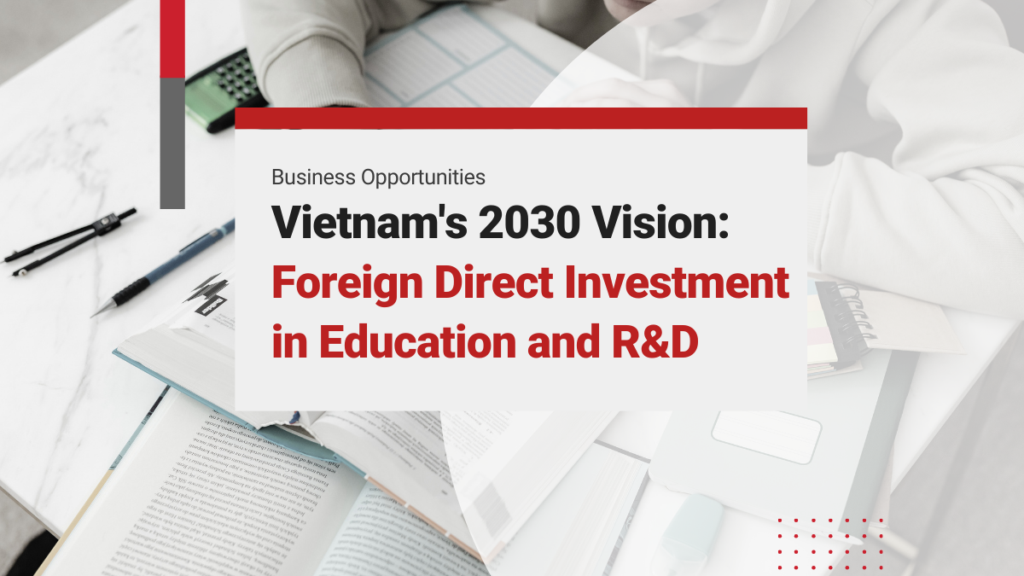The landscape of educational and technological innovation in Southeast Asia is undergoing a remarkable transformation, with Vietnam emerging as a pivotal player in that ecosystem. In late 2024, the Vietnamese government unveiled a series of groundbreaking strategies that signal an unprecedented commitment to elevating the nation’s global standing in education, research, and technological advancement.
These comprehensive initiatives, meticulously outlined in Resolution 57-NQ/TW and accompanying governmental decisions, represent a bold vision that extends not just to 2030 but also with a forward-looking perspective to 2045.
The strategic framework goes far beyond mere policy documentation; it represents a national commitment to reshaping Vietnam’s intellectual and technological infrastructure. By prioritizing innovation, international collaboration, and research, the government is positioning the country as a potential regional hub for education and technological development.
Interested in Vietnam’s Education, Training, and R&D? Check out InCorp Vietnam’s Incorporation Services in Vietnam
Strategic National Vision
Comprehensive Policy Framework
Resolution 57-NQ/TW and related governmental decisions represent a holistic approach to national development through education and technological innovation. The strategies are multifaceted, targeting critical areas of educational and research enhancement with unprecedented clarity and ambition.
The primary objective is not simply incremental improvement but a transformative leap in Vietnam’s educational and research capabilities. By setting ambitious targets for research and development investment, the government is signaling its determination to create an innovation-driven economic environment that can compete on the global stage.
Read Related: Ease of Doing Business in Vietnam: Why Do Foreign Investors Choose This Destination?
Research and Development Priorities
The commitment to research and development is particularly noteworthy. The Vietnamese government has set a bold target of increasing R&D expenditure to 2% of the country’s GDP. This substantial investment demonstrates a serious commitment to technological advancement and innovation.
The focus areas for technological development are strategically selected to position Vietnam at the forefront of global technological innovation. Emerging and frontier technologies such as artificial intelligence, the Internet of Things, big data, blockchain, quantum computing, and satellite technologies have been identified as key priority sectors. This strategic selection reflects a deep understanding of global technological trends and the potential for transformative innovation.
Read More: Future-Ready Digital Infrastructure Strategy Approved for 2025 in Vietnam
International Education Transformation
Vietnam’s approach to higher education internationalization is both comprehensive and ambitious. The government has outlined clear, measurable objectives designed to dramatically enhance the global standing of its educational institutions.
One of the most striking goals is to increase the proportion of international students from a modest 0.5% to 1.5%. This might seem like a relatively small numerical increase, but it represents a significant strategic shift in positioning Vietnamese educational institutions on the global stage.
The aspiration to place Vietnamese universities among the top 500 global and top 200 Asian rankings demonstrates a commitment to quality and international recognition. By encouraging over 20% of higher education programs to be offered in collaboration with top-ranked international partners, Vietnam is creating a robust ecosystem for academic excellence and cross-border educational partnerships.
Read Related: How to Open a School in Vietnam: Four Key Factors to Consider in the Education Industry 4.0
Investment and Collaboration Opportunities
Higher Education Partnerships
For international universities and educational institutions, Vietnam presents an unprecedented opportunity for strategic expansion and collaboration. The government’s incentives for establishing branch campuses and developing joint degree programs create a welcoming environment for global educational providers.
Foreign universities can now more easily establish a presence in Vietnam, leveraging the country’s supportive regulatory environment and rapidly growing education market. The emphasis on joint programs with globally ranked institutions provides a clear pathway for meaningful academic collaborations.
Read Related: Online Learning – Advantages & Disadvantages, and Growth Opportunities in the Vietnam Education Market
Technology and Innovation Ecosystem
The technological innovation in Vietnam is equally promising. Technology companies, research institutions, and innovation-focused organizations will find a fertile ground for establishing research centers, piloting innovative projects, and engaging in meaningful technology transfer initiatives.
The government’s increased investment in R&D, coupled with a clear focus on frontier technologies, creates a compelling value proposition for international tech companies and research organizations. By aligning with Vietnam’s technological priorities, businesses can access a market with significant growth potential.
Navigating Opportunities and Challenges
While the opportunities are substantial, successful engagement requires a nuanced understanding of the local context. International businesses must approach the Vietnamese market with flexibility, cultural sensitivity, and a genuine commitment to collaborative growth.
Corporate social responsibility will play a crucial role in successful market entry. Companies that demonstrate alignment with Vietnam’s national innovation goals and contribute meaningfully to sustainable development will be more likely to establish long-term, mutually beneficial partnerships.
Conclusion
Vietnam’s 2030 vision for education, training, and research and development (R&D) aims to transform the country into a key player in the global knowledge economy. By fostering an ecosystem that supports innovation, international collaboration, and technological advancement, Vietnam is focusing on developing a highly skilled workforce and enhancing its educational infrastructure to meet the demands of evolving industries, particularly in technology and manufacturing.
The government is prioritizing investment in R&D, creating incentives for both local and international companies to drive innovation in critical sectors like biotechnology and renewable energy. This strategy positions Vietnam as a hub for global collaboration, attracting investment and talent while strengthening its competitiveness in the global market.
How InCorp Vietnam Can Help?
InCorp Vietnam stands as your strategic partner in navigating the complex and exciting landscape of educational and technological investments in Vietnam. Our comprehensive suite of services includes market research, regulatory compliance consulting, business setup, partnership facilitation, and ongoing strategic advisory services.
With deep local expertise and a global perspective, InCorp Vietnam is uniquely positioned to help international businesses and educational institutions unlock the immense potential of Vietnam’s rapidly evolving market.
Frequently Asked Questions
Q1: What differentiates Vietnam’s educational investment landscape?
Vietnam offers a unique combination of government support, a young and dynamic workforce, rapid economic growth, and a strategic commitment to technological innovation. The country’s clear vision and supportive policies create an attractive environment for international educational and technological investments.
Q2: How accessible are international collaborations in Vietnam?
The government has explicitly created frameworks to encourage international collaborations, including incentives for joint degree programs, research partnerships, and the establishment of international branch campuses. These policies significantly lower barriers to entry for foreign educational institutions.
Q3: What are the most promising technological sectors in Vietnam?
Artificial intelligence, blockchain, Internet of Things, quantum computing, and satellite technologies have been identified as priority sectors. These areas represent significant potential for research, development, and commercial innovation.
Q4: What support mechanisms exist for international investors?
The Vietnamese government provides various support mechanisms, including targeted investment incentives, research funding opportunities, streamlined regulatory processes, and active support for technology transfer and international collaborations.

clients worldwide

professional staff

incorporated entities in 10 years

compliance transactions yearly
Learn the Right Setup for Business
Expansion in the Vietnam
Frequently Asked Questions
What is the best meaning of education?
- The best meaning of education is the process of acquiring knowledge, skills, values, and habits through learning, instruction, or study. It enables individuals to develop intellectually, socially, and morally to participate effectively in society and improve their quality of life.
What is the definition of education?
- Education is the process of acquiring knowledge, skills, values, and attitudes through study, instruction, or experience. It can take place in formal settings like schools and universities or through informal methods such as self-learning and life experience.
Why is education most important?
- Education is important because it equips individuals with knowledge, skills, and critical thinking necessary for personal and professional development. It also contributes to economic growth, social stability, and informed decision-making in society.






